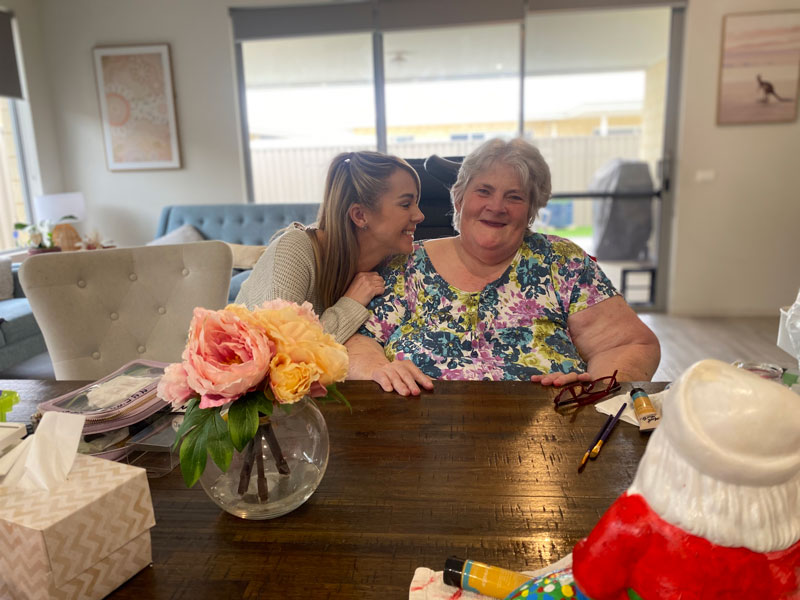
SIL and SDA may both be 3 letter words, but they are completely different in their meaning and funding in the NDIS.
Lets understand what each one is and the difference between the two.
What is Supported Disability Accommodation (SDA)
Supported Disability Accommodation (SDA) is for people with disability who have:
- severe functional impairment or
- highly complex support needs
Because of this they require specialist housing alternatives as they cannot live in mainstream housing.
If you are eligible, the NDIS allocates funds towards the cost of your housing through SDA payments made directly to an SDA provider.
This funding only covers the accommodation ('bricks and mortar' cost of housing).
Who is eligible for Supported Disability Accommodation (SDA)?
According to the NDIS SDA Rules (2016), severe functional impairment means that, even with appropriate home modifications and/or assistive technologies, you will still need support with daily activities such as:
- getting in and out of bed
- getting dressed
- moving around
- preparing meals
- accessing the community
Highly complex support needs means one or more of the following:
- that your ‘informal supports’ (people who help you but don’t get paid for their help; often family or friends) can’t meet your personal care needs
- you have already spent a long time in a group home or residential aged care which has impacted your capacity to live in alternative housing
- you have behaviours that pose a risk to yourself or others and SDA could help mitigate these risks
How do I apply for Supported Disability Accommodation (SDA) in my NDIS plan?
You will receive SDA Payments in your NDIS plan if you have very high support needs and you:
- live in residential aged care or
- in hospital or
- with ageing parent carers or
- have behaviours of concern.
If you have very high support needs, but don’t already live in disability housing, 'housing' needs to be one of your goals in your NDIS plan.
You will need capacity building funding from the NDIS to search for suitable housing and write a Housing Plan - this is your 'application' for SDA.
Before creating a housing plan, you will have help to investigate if other housing support options are possible like: home modifications and custom asssistive technology.
The NDIS will use the information in your Housing Plan to decide whether SDA payments are reasonable and necessary for you. I.e. you can’t access mainstream housing because of your extreme functional impairment or very high support needs.
You will do this with the help of a support coordinator.
Here is a guide for Support Coordinators when writing a housing plan: HOW TO WRITE A HOUSING PLAN - Summerfield Foundation
How to I use my NDIS funds to get SDA
Once the NDIS had approved SDA payments in your plan, your SDA funding can only be paid to a NDIS registered SDA provider that has compliant housing.
You are need to get quotes from registered SDA Housing providers first and choose the provider you wish to use.
The amount of funding received will depend on the type and location of the housing.
What is Supported Independent Living (SIL) in the NDIS?
Supported Independent Living (SIL) is the support or supervision of daily tasks by paid support workers to help an individual to live as independently as possible.
This support can delivered to a group of people sharing a home together, or to one person receiving support in their own home.
The Supported Independent Living (SIL) might include supports like:
- Help with personal care, like showering, dressing and toileting
- Help with household tasks such as shopping, preparing meals, washing clothes and cleaning
- Active overnight and/or sleepover support
- Assistance with complex medical needs
- Positive behaviour support management
- Clinical support such as administering medication and management of issues such as bowel care, catheter, epilepsy, asthma and tube feeding
- Medication management
There are three levels of SIL funding:
- ‘Lower needs’ provides regular supervision of living arrangements. ‘
- 'Standard needs’ provides 24/7 active assistance of most daily tasks.
- ‘Higher needs’ provides continual and more complex active assistance to the individual.
Who can apply for Supported Independent Living (SIL) in the NDIS?
Funding for SIL does not depend on where you live. All NDIS participants may be eligible for SIL funding, whether they rent privately, own their own home, live with others, or live in Specialist Disability Accommodation.
The NDIS participants who get SIL in their plans are people who need assistance with and/ or guidance to help develop their skills to undertake tasks of daily life.
Participants receive SIL funding for things like:
- Regular support to help people build their independence skills
- Full-time or frequent help with managing challenging behaviours
Do SDA and SIL always go together?
No. Many people will only receive SIL funding, and only some participants may receive SDA and SIL together.
NDIS THERAPY FINDER - FREE SERVICE
LET US FIND YOU A SKILLED SUPPORT WORKER

